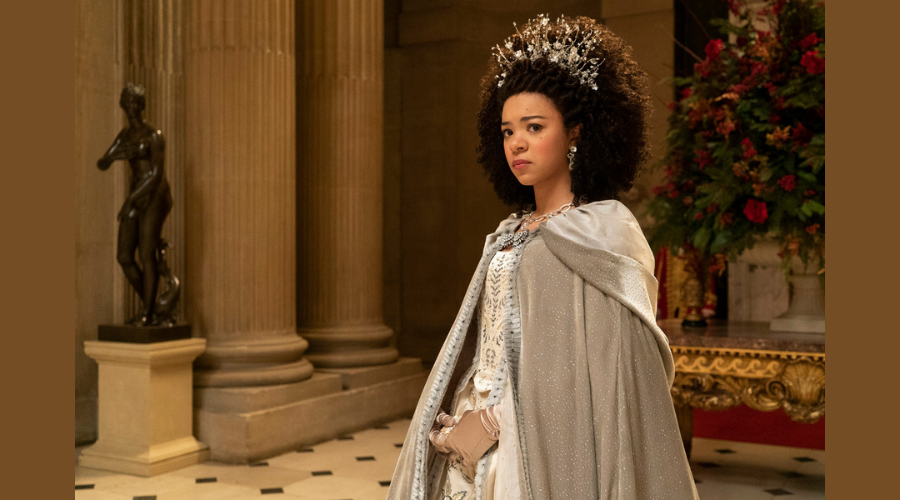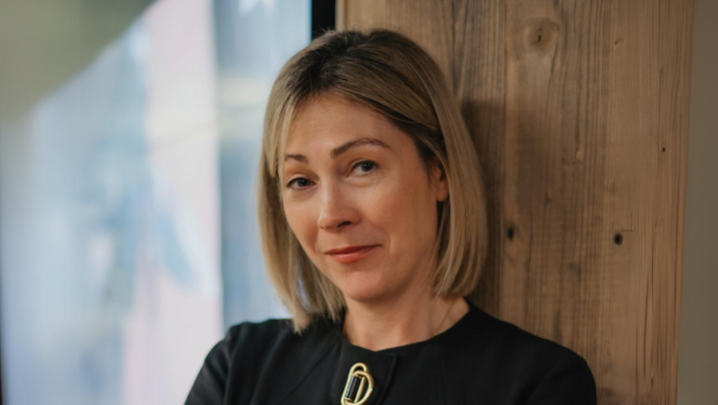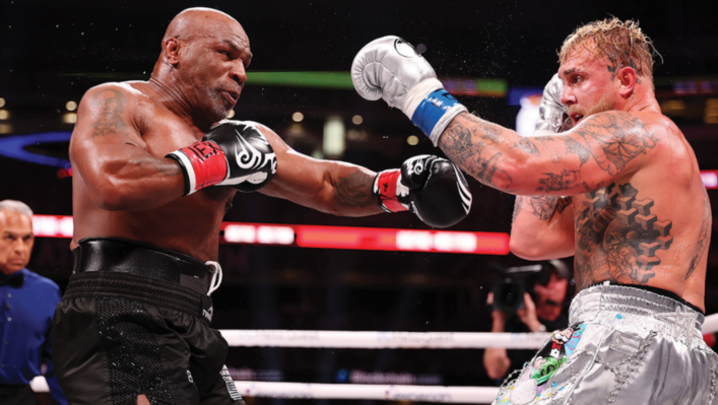Shows such as Bridgerton and the BBC’s latest Great Expectations are bringing fresh energy to costume drama, reports Shilpa Ganatra.
In 2015, David Oyelowo, who played Martin Luther King in the film Selma and starred in BBC One’s Spooks, highlighted the lack of on-screen opportunities for people of colour in British period dramas.
“We make period dramas, but there are almost never black people in them, even though we’ve been on these shores for hundreds of years,” he told Radio Times. “We don’t get [to star in] Downton Abbey or Call the Midwife or Peaky Blinders or the 50th iteration of Pride and Prejudice. It’s frustrating because it doesn’t have to be that way.”
It is a sign of progress that, three years later, he won a high-profile role in Andrew Davies’s adaptation of Les Misérables for the BBC. But could the Oyelowo of 2015 have imagined that, eight years on, one of the most impactful TV series being streamed would put people of colour front and centre, in the background and behind the camera: Netflix’s Bridgerton.
The producer is Shondaland, set up by Shonda Rhimes, the US screenwriter famous for Grey’s Anatomy. Shondaland’s new spin-off series, Queen Charlotte: A Bridgerton Story, builds on its predecessors’ contemporary take on Regency London. It tells the origin story of its eponymous heroine, played by India Amarteifio (Sex Education, Line of Duty).
In the series, she grapples with her new royal position, befriending a young Lady Danbury (Arsema Thomas) in the process. Her ethnicity is no accident: it stems from the historians who believe the real-life Queen Charlotte was descended from a black branch of the Portuguese royal family. The theory has been called into question, but why let the truth get in the way of a good story?
"Want to be historically accurate? All the characters should have terrible teeth"
Casting director Kelly Valentine Hendry (Gangs of London, which earned her an RTS Award nomination, Fleabag, Broadchurch) worked on all three iterations of the franchise – series 1 and 2 of Bridgerton and Queen Charlotte.
Casting the new show was “almost too easy” because she wasn’t required to enlist a recognised name in a lead role. She could hire on merit alone.
“On top of that, being able to look for actors who are in their early twenties is a joy, because you can tap into new actors. India already had a body of work behind her, but Arsema was straight out of drama school.”
Hendry adds: “The great thing about this team is that we never needed to be briefed on diversity and inclusion. With Shondaland and Netflix, it goes without saying because people of colour are at the heart of the decision-making process. It’s a problem when we have tables of white people having discussions about diversity. I’m glad we’re having those discussions, but they are quite often had with nobody at that table who has the lived experience.”
Bridgerton’s arrival in 2020 came just as TV period drama was slowly embracing actors of colour. Cole Edwards, the co-casting director who worked alongside Hendry on Queen Charlotte, recalls: “When I started casting five years ago, diversity meant, ‘Let’s make the postman black.’”
Queen Charlotte is the latest in a small but significant number of period dramas featuring non-white leads. Armando Iannucci made headlines when he cast Dev Patel (Slumdog Millionaire, Lion) in the title role of The Personal History of David Copperfield, the 2019 feature film based on Charles Dickens’ novel.

Additionally, Channel 5’s Anne Boleyn cast a non-white actor (Jodie Turner-Smith) as the short-lived Tudor queen. More recently, Steven Knight’s controversial reboot of Great Expectations for BBC One also used colour-blind casting. Both Estella and Jaggers were played by black actors. ITVX is currently airing Tom Jones, with the Australian-Ivorian Sophie Wilde as Jones’s love interest.
It is notable that compared with other genres, be it sci-fi or soaps, period drama has been slow to reflect Britain’s ethnic make-up. This is a problem, given the amount of British period drama and the prestige that it carries globally.
Hendry says: “We are fantastic at period dramas. We hold on to our history so much. But that means the rewriting of any British history doesn’t go down very well with a lot of people. And, because so many people have access to television, they feel that they own it slightly and want their story to be portrayed. It’s taking a bit of time for people to realise that there are other types of people in the world.”
For Iannucci, removing racial barriers for The Personal History of David Copperfield was a no-brainer, especially after he brought Patel on board following his Oscar-nominated performance in Lion. The film also featured families of different ethnicities: there was Mr Wickfield (Benedict Wong) and his daughter Agnes (Rosalind Eleazar), and Steerforth (Aneurin Barnard) and his mother (Nikki Amuka-Bird).
"Universal casting: why should I not be allowed to draw from 100% of the acting talent available to me?" - Armando Iannucci
“I know the term is ‘colour-blind casting’,” says Iannucci. “But that is strange to me because it sounds restrictive. It’s universal casting. Why should I not be allowed to draw from 100% of the acting talent available to me?
“In the last five or 10 years, there’s a whole new generation of actors coming out of drama schools who are exciting and sharp and committed. We shouldn’t be saying to them, ‘The bulk of our industry is going to be making dramas from which you are excluded for historic reasons.’”
The idea of staying historically accurate isn’t enough of a reason to restrict casting choices. “If you wanted to be historically accurate, all the characters would have terrible teeth,” he says. “The whole thing is artifice. It’s about how emotionally accurate it is, what the story is that you want to tell, and the best way of telling it.”
Hendry agrees. “The Bridgerton world shows a reimagined version of history, and so what? It’s great fun, and it’s a way to allow more people to enjoy it. Storytelling should be available for everyone, no questions asked.” This is an important point. Regardless of one’s personal feelings on the subject, racial diversity is part of a broader set of updates appropriate for a present-day audience – not least the sought-after under-35s.

This is backed by academic research as much as viewing figures: in a paper for the Children’s Media Foundation, “The appeal of period drama for a younger audience”, Dr Shelley Anne Galpin said: “A sensitivity towards issues of diversity and minority representation, and an appreciation for characters who embodied the struggles of the disadvantaged, was a frequent feature of the responses given by participants in my research."
Other modern-day shifts might also include changes in pace, characters’ attitudes, representations of women, sexuality, colonialism and slavery.
While ensuring that steps have been made regarding diversity in period drama, there remain areas of oversight. There is the issue of greater discrimination towards darker-skinned black and brown people. Hendry notes, too, that Chinese actors are still under-represented, as are people with disabilities.
Happily, open searches – where the net is cast wider than those actors who have agents – are increasingly common. This helps to remove many of the systemic barriers that often limit the diversity of the auditioning pool. We might also dig deeper into the nature of the diversity. Perhaps stereotypical roles – casting a black person as a maid, for example – do more harm than good.
Thanks to the screen industries drawing from a wider range of writers, producers and commissioners, change is coming naturally. Compared with Oyelowo’s experience eight years ago, it seems that all-white period dramas are becoming a thing of the past.
Queen Charlotte: A Bridgerton Story is available on Netflix.







